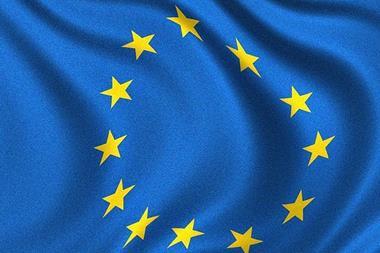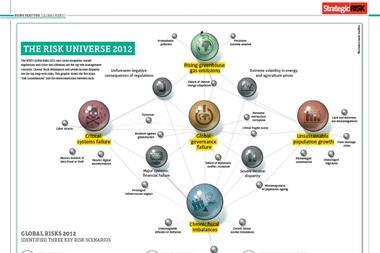There are plenty of divinations about what the next twelve months will bring. But there’s one forecast that tends to prick my ears every year.
It’s the start of a new year, which naturally brings with it a spell of reflection over the year ahead.
At this time of year, there are plenty of divinations about what the next twelve months will bring. You can read about most of them here, like Eurasia Group’s Top Ten Risks for 2012. But there’s one forecast that tends to prick my ears every year. So I thought I’d share it with you.
The World Economic Forum (WEF) released its seventh annual Global Risks report this year. The 2012 edition, while not dissimilar to last year’s forecast, does highlight some noteworthy issues.
Just like last year, economic issues are at the centre of the risk universe, according to the WEF, but interestingly societal issues have leapt to prominence, overtaking some of the environmental concerns that were front of mind in the last edition.
Severe income disparity (which, let’s face it, has been with us for a while) and chronic fiscal imbalances this year superseded hydrological and meteorological catastrophes in the list of top five global risks by likelihood.
Last January, the Forum’s prediction that environmental disasters would be key global risk issues turned out to be prescient. 2011 was the worst year for natural disasters on record, with the Japanese earthquake/tsunami/nuclear disaster eclipsing almost everything else, certainly that year.
It seems no less likely that social crisis will be a critical global risk issue over the next decade (the Forum couches its annual predictions by saying it looks at risk over a ten year horizon). As Lee Howell, the WEF’s managing director, said at the launch of the report in London. “For the first time in generations, many people no longer believe that their children will grow up to enjoy a higher standard of living than theirs.”
The expanding gap between rich and poor is fuelling resentment worldwide
Bulging populations of young people with few prospects, growing numbers of retirees depending on debt-saddled states (stoking fiscal imbalances) and the expanding gap between rich and poor are all fuelling resentment worldwide, said the WEF.
These tensions are manifesting themselves in the form of large scale protests in most major cities, some of which have coalesced around the Occupy anti-capitalist movement, as well as horrific violence in less stable regions, like Egypt, Syria, Libya and many other parts of the Middle East and North Africa.

For European companies, all this means political instability in some key strategic regions, leading to serious asset risks and logistical problems, as well as uncertainty in their home markets.
Tied in with this widespread public lack of confidence and trust in existing institutions (both public and private) is the belief that the existing systems of supervision are wholly inadequate. This is reflected in another of the WEF’s concerns, which is that policies and institutions are no longer able to protect us in a more complex and interdependent world.
The weakness of existing safeguards is exposed by risks related to emerging technologies, financial interdependence, resource depletion and climate change, leaving society vulnerable, said the Forum.
Significantly, one of the WEF’s key research partners, called for better regulation of the markets. “We’ve seen examples of over-regulation, like the response to the Icelandic volcanic eruptions, or under-regulation, such as the sub-prime or eurozone crises. We need to get the balance right with regulations and, to that end, our safeguards must be anticipatory rather than reactive,” said David Cole, chief risk officer of Swiss Re.
Policies and institutions are no longer able to protect us in a more complex and interdependent world
Cole’s motives quickly became clear when he followed up with another statement claiming that some efforts to stabilise the financial system could endanger the risk capacity of the insurance sector and hamper growth. It struck me as a muted pop at the Solvency II regime.
Finally, the WEF could hardly miss off cyber threats. Although it didn’t feature in the top five risks it is something that qualified for extra attention, being as it is a very systemic threat which has the potential to cause significant harm the world over.
The WEF attributed some new headline grabbing names to cyber risk, including “the dark side of connectivity” and “cyber-neotribalism”. But basically it was flagging up how our daily lives have become almost entirely dependent on connected online systems, making us increasingly susceptible to malicious individuals, institutions and nations that have the ability to unleash devastating cyber attacks remotely and anonymously.
These predictions in themselves won’t actually help risk managers deal with any of these problems. In fact, most of these issues are probably already clearly highlighted on most corporate risk registers. But some of the WEF’s insights might help risk managers ask the right questions when it comes to assessing their organisation’s risk exposure.
In an effort to shed some further light on the situation, StrategicRISK is conducting its own research with risk managers around Europe to discover what organisations are practically doing to overcome some of these challenges. Our Risk Report will accompany the May issue of SR—and of course you’ll also be able to find it online.




















No comments yet